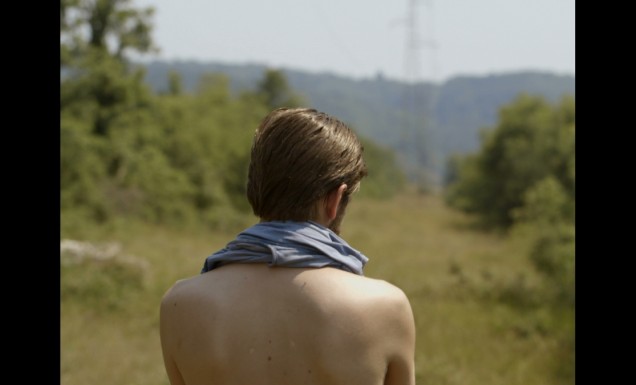Short Trip
Kratki izlet, documentary-feature film, Croatia, 2017
DIRECTED BY: Igor Bezinović

CAST:
Ante Zlatko Stolica,
Mladen Vujčić,
Željko Beljan,
Iva Ivšić,
Marko Aksentijević,
Martina Burulic,
Josip Visković
SCRIPT:
Igor Bezinović,
Ante Zlatko Stolica
PHOTOGRAPHY:
Danko Vučinović
MUSIC:
Hrvoje Nikšić
EDITING:
Hrvoslava Brkušić,
Miro Manojlović
Synopsis:
Stola is a man on the threshold of middle age who tells about what happened to him and a group of his friends and acquaintances one summer a few years ago. That late July, they found themselves at the Motovun Film Festival, where all their days seemed like a continuous party. And then Stola's friend Roko suggested to them one evening, somewhat under the influence of alcohol, that the next morning they go on a bus trip to a nearby monastery, where supposedly the most beautiful frescoes in Istria can be seen. A group of young people, including girls Iva and Martina and young men Viski, Žac and Aksa, got on the bus on a very warm morning and, led by Roka, went in search of frescoes. They were not hindered by the heat or the imminent breakdown of the vehicle, because they believed that the monastery was close and that, as someone said, it could be reached on foot even in the worst of the sun. Although none of them knew exactly where they were going, they continued walking despite the fatigue and the heat, only occasionally suspecting that the journey itself might be more important than the goal. And then individuals began to give up, not always for rational reasons. One stayed with a lonely and attractive young girl in a remote village with few locals, the other stayed drunk in the tavern of old Bert who fed and watered them, and one of the girls got a sudden urge to run through the forest.
In 2017, she was awarded the Great Golden Arena for the most successful film and the Golden Arena for the best sound, for which the recently deceased Martin Semenčić is responsible. the existential drama Short Trip by co-writer and director Igor Bezinović is a very free interpretation rather than a screen adaptation of Antun Šoljan's novel of the same name. Bezinović's feature-length feature debut, for which the co-screenwriter and main actor Ante Zlatko Stolica is equally responsible, is an adaptation of one of the significant prose works of modern Croatian literature, a work that is very demanding for a screen adaptation. Not only because of the bittersweet humor, at least a general empathy towards the characters, a penchant for frivolity and mild eroticism, a very effective and almost tactile atmosphere, sharp character-psychological observations, purposeful excursions into exaggeration and caricaturism, and more or less pronounced i.e. subtle criticism of society, but also because of the playful, charming, singing, as a rule unbridled associative and pictorially elaborate sentences marked by wild word games. Bezinović and Stolica approached the novel, which at the time of its publication, during the first half of the 1960s, was greeted as a distinctly modernist work that departed from the contemporary poetics of social (socialist) realism, in such a way that they transposed it into today's time and into another modern generation. But the essence at the conceptual, symbolic and meaning level is completely retained, from the protagonist's introspective plunge into the depth of his own soul and the meaning of his personal existence, through the connection of the past and the present, in the spiritual and metaphorical sense of bridging the entire centuries and almost the entire human history sublimated in the search of the individual for his own battle, which is gradually becoming the battle of mankind. Religious connotations have also been preserved, not only on the first and obvious level of the desire to find the frescoes, but also on a deep intimate level, which is materialized in the final metaphorical descent into the bowels of the earth under the monastery, which desirably hides the essence of the meaning and purpose of the protagonist's existence, as well as the meaning and the purpose of human existence as a being. But finding that meaning and purpose is missing, which brings the narrator/individual back practically to the beginning. While Šoljan's novel is dominantly introspective-spiritual, the film is predominantly manifest-eventful due to the nature of the medium, and the underplay of the spiritual dimension in relation to the novel can lead to the conclusion that the film (roads) in certain segments suffers from a lack of events. But that is not the case, which is easy to see on repeated viewings, because Stola, like the unreliable narrator in the novel, is a character who guides the reader and who, following to a lesser extent the erudite excursus and irony and to a greater extent the cynical observations of the novel's narrator, is a rhythmic narrator, just just as the events and episodes are rhythmically dramaturgically composed.
color, 75'